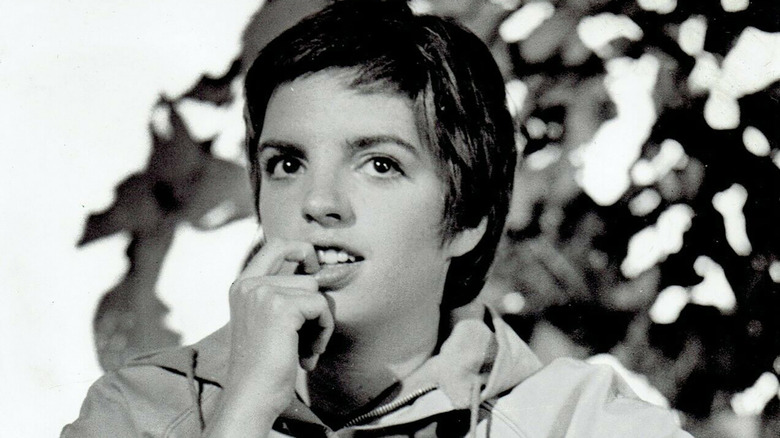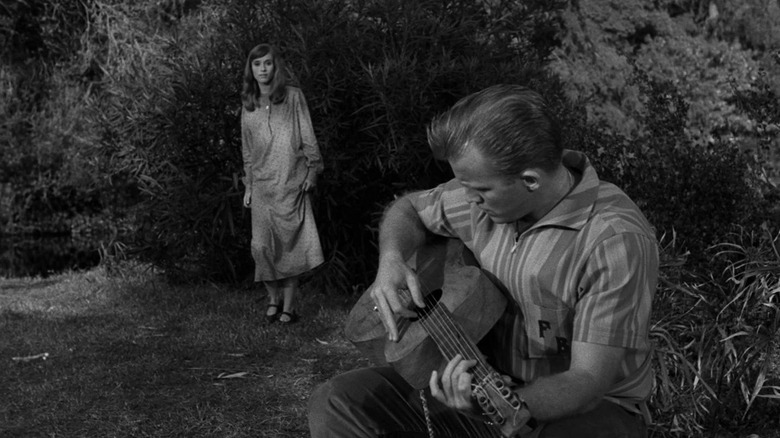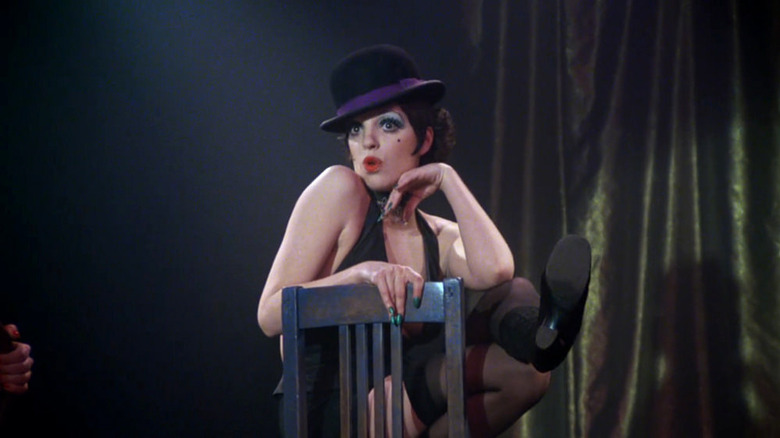A Short-Sighted Twilight Zone Producer Passed On Casting A Young Liza Minnelli
The "Twilight Zone" episode "Come Wander With Me" is probably better remembered for its titular song than its strange, ambiguous story. Unlike many other episodes of "The Twilight Zone," where the twist is thoroughly explained, the ending of this one is left up to the viewer's interpretation.
The episode centers on a cocky young singer called Floyd Burney (played by Gary Crosby), who styles himself as "The Rock-A-Billy Kid" and is scouring the backwoods of the U.S. for old folk songs that he can jazz up and call his own. But when he hears a beautiful young woman called Mary Rachel singing a song called "Come Wander With Me," Floyd is so fixated on capturing the tune that he chases it all the way to his grave. Mary Rachel cryptically says that he does so "every time," trying and failing to persuade him to make different choices. It's part ghost story, part cautionary tale, and part rumination on the nature of fate and free will.
The enigmatic Mary Rachel was played by Bonnie Beecher in her television debut. "I thought Bonnie Beecher was going to become a very important actress," director Richard Donner recalled in an interview for the book "Dimensions Behind the Twilight Zone." In fact, Beecher retired from acting just a few years later. But there was another young actor with a beautiful voice who auditioned for the role: Liza Minnelli, who at the time was still only known as Judy Garland's daughter.
Who's afraid of the Twilight Zone?
"One of the people I interviewed was this nervous, frightened little girl whose hands shook and who was covered with sweat," producer William Froug recalled in an interview for "The Twilight Zone Companion." He wasn't impressed. "I said, 'She'll never make it.' Her name was Liza Minnelli." Froug clarified that he certainly thought Minnelli had the potential to be a star, but felt that the teenager who sat in front of him was all wrong for the role of Mary Rachel:
"I'll never forget Liza Minnelli sitting there and her agent saying, 'This girl can really sing.' I said, 'I'm sure she can,' but I thought, 'Oh, she is so nervous! She's scared out of her mind. To picture her as a hillbilly singer: no way.' And I must tell you — and this is the truth — at the time, I sat there thinking, 'Well, I'll probably kick myself for this but I can't see this girl playing the part — but she'll probably be a big star.' I still don't regret it, but it was really classic stupidity."
Richard Donner later disputed Froug's characterization of the casting process, particularly his taking the credit for choosing Bonnie Beecher over Minnelli. "He didn't choose her; I did," Donner said in "Dimensions Behind the Twilight Zone," adding, "Because I knew Liza. I thought Bonnie was incredible."
Vulnerability in performance
Froug isn't alone in describing the young Liza Minnelli as being exceedingly nervous at that age. In Wendy Leigh's biography "Liza Minnelli: Born a Star," writer Lawrence Eisenberg recounts a meeting with Minnelli in 1963, not long before she would have auditioned for the "Come Wander With Me" role. "Her hands were shaking so that I had to hold them just to stop them from shaking," said Eisenberg. "She was so vulnerable I instinctively wanted to protect her."
After Minnelli appeared in the off-Broadway show "Best Foot Forward" in 1963, critic Jerry Tallmer observed that she shared an "immense vulnerability" with her mother, Judy Garland. Minnelli herself commented on this in the book "Rainbow's End," explaining that Garland's acting was so compelling because it came from a genuine place:
"She understood that her vulnerability in performance was something that we all recognize in ourselves. She knew how to portray somebody in flux, somebody in pain. She understood it deeply enough to portray it."
Of all the reasons that Liza Minnelli could have missed out on that early opportunity, it's strange to think that being "scared out of her mind" was one of them. After all, there's plenty to be frightened of ... in the Twilight Zone.


